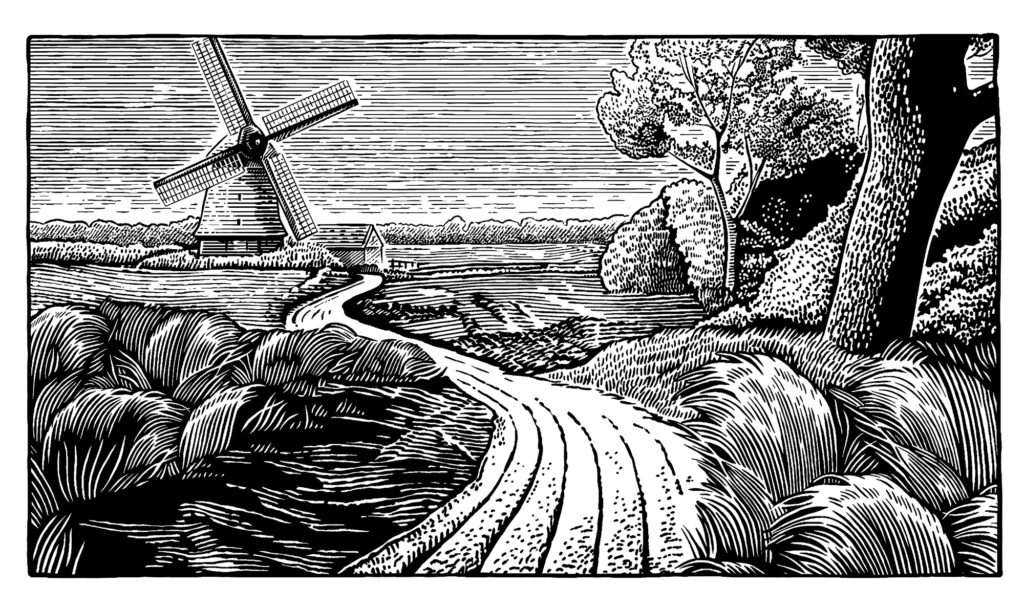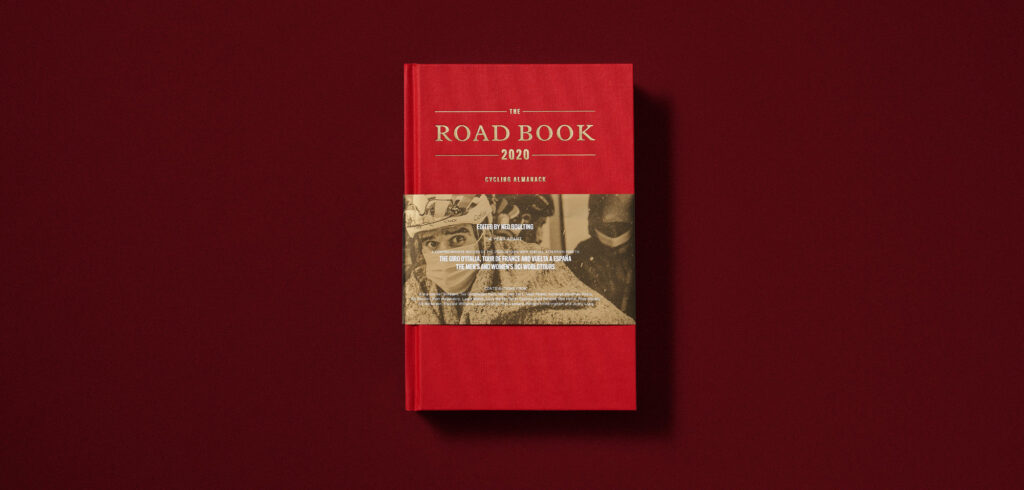Author: Bert Wagendorp

On Sunday 15 March 2020 the Gran Premio de la Patagonia, a not unimportant new road race in the UCI category 1.2, finished in Puerto Montt, a port town in central Chile in the Los Lagos region. That day, the race had also started in Puerto Montt. After 51 years Puerto Montt once again escaped from anonymity, after the city of more than 245,000 inhabitants had made the world news on 4 March 1969. That day the Chilean army burned down illegally built houses, killing 11 people. In the spring of 1970 the left-wing presidential candidate Salvador Allende defeated the incumbent president Eduardo Frei, marking the beginning of a tumultuous process that ended with a coup d’état and Allende’s suicide on 11 September 1973, the death of thousands of his supporters and the takeover by the vindictive dictator Augusto Pinochet.
You will wonder, dear reader, what this has to do with cycling. Not much, but something; I’ll come back to that.
The winner of the first Gran Premio de la Patagonia was the Colombian José Tito Hernández of Team Medellín, born on 8 May 1994 in El Carmen de Viboral, a town near Medellín that enjoys some fame, partly because José Tito Hernández was born there, but above all as a producer of special ceramic products. El Carmen also has a branch of the University of Antioquia. I would like to be able to say that José Tito Hernández obtained his doctorate in philosophy there, but as far as I know this is not the case.
Hernández, like any Colombian, has a second last name, that of his mother. His mother was a Jaramillo and that changes things. The Jaramillos belong to the Colombian cycling aristocracy. Three brothers – Sergio, Fabio and Carlos Jaramillo – raced at the highest levels in the 1980s as part of the first great wave of Colombian talent. Because his name is Jaramillo and he’s still only 25 years old, we can expect a lot from José Tito, especially since he gained so much self-confidence in the Gran Premio de la Patagonia. It was, after all, the final race in the world, before it all shut down.
The silence that descended on the cycling season 2020 at a certain point not only created boredom but also time and emptiness. While under normal circumstances, you rush from race to race without giving yourself the time for deepening understanding, there was now suddenly room for reflection. For questions like: what is the meaning of the Gran Premio de la Patagonia, that wonderful new race along the banks of the Bahia di Puerto Montt? Which riders had all their season, all the hopes they still carried, focused and tuned to the Gran Premio? How was the mood in Puerto Montt now that the racing had finally started?
Place the story of the Gran Premio de la Patagonia into the hands of a novelist and he might turns it – perhaps in the tradition of the great Chilean writer Roberto Bolaño – into a story with six layers, with José Tito Hernández as a tragic protagonist and the race itself as a symbol of the end of time, of the last signs of life before the apocalypse.
——
How do you survive a spring and a summer without races? I didn’t know until it happened. On the original dates of Milan–Sanremo, the Tour of Flanders and Paris–Roubaix, I was still a bit sad sitting in front of the television, perhaps in the hope that some rogue rider hadn’t heeded the race ban and had just started his race anyway. But I got used to the race-free spring; there was no choice. In May it was difficult again, without the Giro. On the Saturday on which the Tour was supposed to start – a Saturday that I’ve counted among the most beautiful Saturdays of the year for many years – I was downright depressed.
The first Saturday of each Tour brings me back to the first Saturday of the 1989 Tour, when I made my debut as Tour reporter for the Dutch newspaper de Volkskrant. The excitement, the expectations, the nervousness, the idea of playing a part in a still unknown story full of miraculous characters – and miraculous they were, that summer. If, as a cycling friend always claims, cycling is a literary genre, then the 1989 Tour was the best post-war novel. The plot, the game of seconds on the Champs-Élysées between LeMond and Fignon, hasn’t been surpassed since. I didn’t yet know, that Saturday afternoon 31 years ago, but the story hung sizzling in the hot air above Luxembourg.
Every year I become the young man I was then, just for one day. But this year that magical Saturday wasn’t there. I wondered if you could just transport it to the end of August, as was the plan. I wasn’t too optimistic – late August is just past the height of summer at its best. Most of the promises made at the end of June and the beginning of July have already been fulfilled; the melancholy of autumn is appearing.
I decided it was time to get myself together. I discovered the beauty of data and race results. They became a source of comfort. If you don’t get the cycling stories delivered, you have to make them yourself, I thought. That’s all there is to it.
To call José Tito a big winner would be an exaggeration. To be honest, in Puerto Montt he notched up his first victory since 2012, when he’d surprisingly won the junior Colombian time trial championship. So much hope, followed by so much disappointment! But now, finally, in Puerto Montt: victory. Puerto Montt will remain in José Tito’s thoughts forever. We should think about that when we carelessly dismiss a race like the Gran Premio de la Patagonia as insignificant.
There wasn’t much competition for Hernández. He crossed the line all on his own, followed by a familiar name: his teammate Óscar Sevilla, the former rider from the big Kelme team of the beginning of the millennium, who finished second in the Vuelta in 2001 and seventh in the Tour de France that year. Operation Puerto, the Spanish doping investigation, cost him his job on T-Mobile in 2006, and forced him to move to South America, where he still competes with the best riders as a 43-year-old.
That Sunday in Puerto Montt was still the early phase of a promising cycling season in 2020, which had already made a solid start in South America with the Tour of Colombia and the Vuelta a San Juan Internacional. Those last two stage races, which usually get snowed under in the storm of European cycling, merit closer attention.
The Vuelta a San Juan Internacional is a race in Argentina that was held for the first time in 1982 and won by Eduardo Walter Trillini, who not only did well on the road but also as a Six-Day rider. Little else is known about Trillini except that, after years of absence from the lists of results, he suddenly popped up again in June 2009, at the age of 51, as the winner of the Criterium de Apertura en Mercedes, a suburb of Buenos Aires. After that he disappeared into the fog again.
What does this information have to do with the first half of the cycling season 2020, you wonder? Well, the 38th Vuelta a San Juan Internacional, consisting of seven stages, was won by Remco Evenepoel on 2 February 2020. Anyone who can in any way be associated with Remco Evenepoel – for example, as the first winner of a race that was subsequently won by Evenepoel – is automatically of interest. In the coming years all such persons will be discovered one by one and will be cross-examined. This is how the myth of Evenepoel will be built up, and one of the stones with which its edifice will be erected – a small stone, but still – is the name Eduardo Walter Trillini, recalled from nowhere to 2020.
Óscar Sevilla, ‘El Niño’, finished third, by the way, in the Vuelta a San Juan Internacional, a sign that he still has a lot of class. He bridges the gap between Marco Pantani, against whom he rode in the Giro of 1999, and Remco Evenepoel, with whom he raced in the International Tour of San Juan. No one else can say that, although I’m not sure Sevilla would be aware of this and would doubtless shrug with total indifference to the sentiment contained in the observation. Cyclists are seldom romantics.
After the Vuelta a San Juan Internacional, Evenepoel also won the Volta ao Algarve em Bicicleta, a prize that made him heir to greats like Contador and Thomas. These were his achievements before lockdown. It was as if Evenepoel felt that 2020 was a year to strike early – the very greatest riders have a sixth sense that allows them to pick up signals that ordinary souls miss.
In January 2020, when the world was still as we knew it, Richie Porte won the Tour Down Under. Richie Porte has been first or second in the Tour Down Under since time immemorial. This confirmed the safe feeling that everything always stays the same, that the 2020 season had started like all previous seasons and that it would also take place along the same lines – it immediately seemed highly likely that Richie Porte would crash in the Tour.
In mid-February 2020 lots of people noticed that there were big names on the starting list for the Tour of Columbia. Alaphilippe, Bernal, Carapaz, Chaves. It was also noticed that none of the names won. After six stages the 23-year-old Colombian Sergio Higuita of EF Pro Cycling was on top, and Egan Bernal finished fourth.
At the end of February, the UAE Tour reported that the organisation had cancelled the last two stages, after two employees of an Italian team had tested positive for Covid-19, the name of a virus that was not very well known at that time.
On Sunday 15 March, Maximilian Schachmann won Paris–Nice. Sergio Higuita came third. The Colombian wave will gain further strength, the insiders said, with the self-confidence known of insiders. And in Puerto Montt the Gran Premio de la Patagonia ended a few hours later.
Carlos Vergara, a 44-year-old Chilean veteran of the Sembrasol Pichidegua team, finished last, 7 minutes 45 seconds behind José Tito Hernández Jaramillo, on the Avenida Presidente Ibáñez. He was 1 minute 18 seconds behind the number 45, David Sylvestre-Williams from Canada.
For 78 seconds Carlos Vergara had been the only rider in the world in an official race. He didn’t know he was writing history: it would take more than three months before a cyclist would pass an official race somewhere, namely when Primož Roglič became national champion of Slovenia on 21 June. Yet, when Carlos Vergara had finished and the broom wagon had stopped behind him, someone turned off the light.

